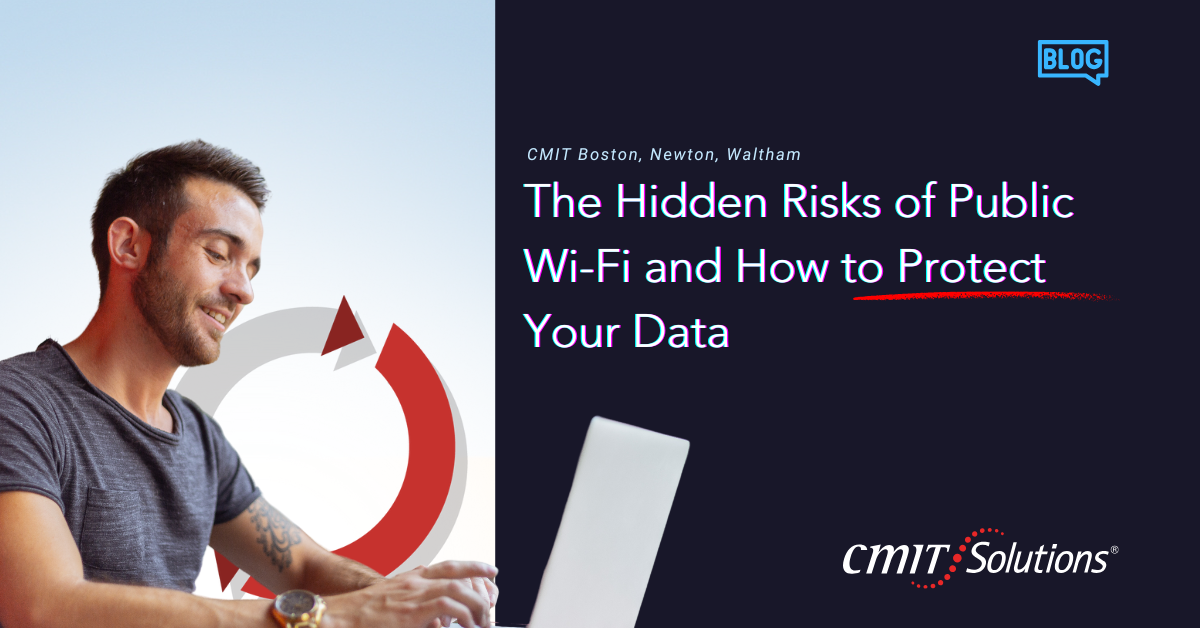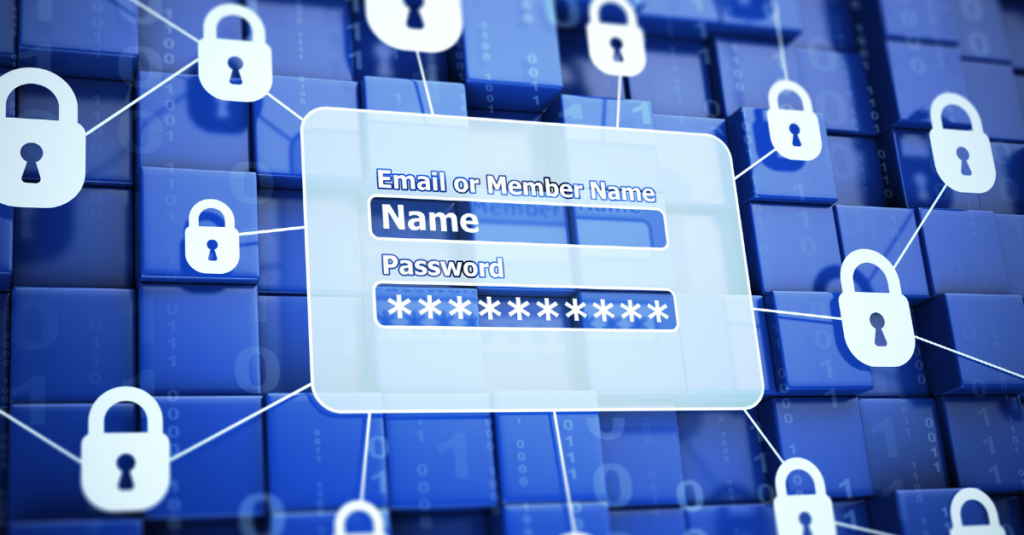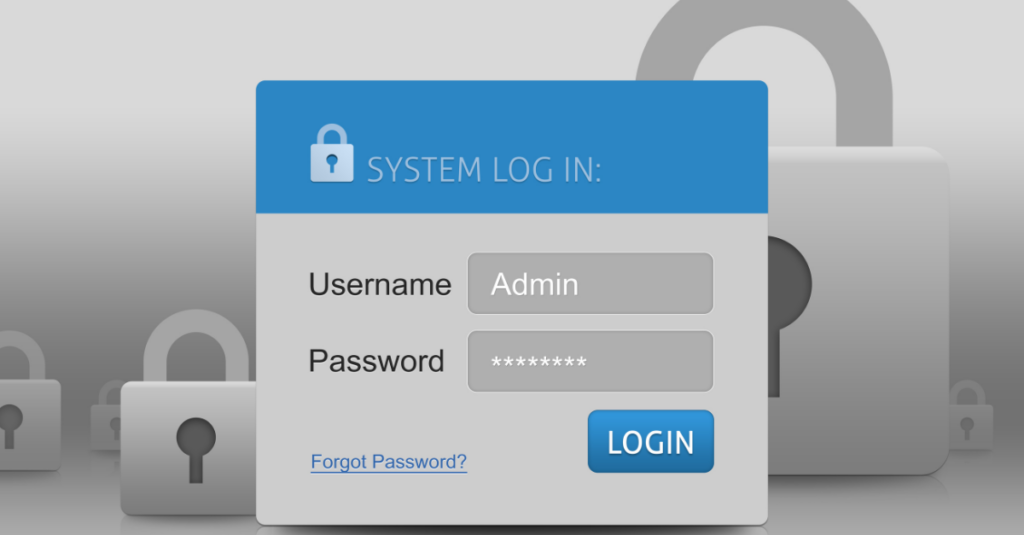Understanding Public Wi-Fi Risks in the Workplace
Your employees and customers often rely on public Wi-Fi in cafes, airports, and retail stores for convenience. While this free access may seem harmless, it exposes businesses to serious cybersecurity threats. Without proper security measures, public Wi-Fi risks could lead to data theft, ransomware attacks, and network breaches.
At CMIT Solutions of Boston, Newton, and Waltham, we prioritize secure IT environments and recommend businesses take proactive steps to safeguard sensitive data from cyber threats. Understanding how hackers exploit unsecured networks is the first step toward implementing a strong cybersecurity strategy.
How Public Wi-Fi Networks Put Data at Risk
Using public Wi-Fi can be dangerous, especially when employees access business-sensitive information on unsecured networks. Cybercriminals use sophisticated techniques to steal data, including:
1. Man-in-the-Middle (MitM) Attacks
Hackers intercept communications between users and public Wi-Fi networks, capturing login credentials, emails, financial data, and intellectual property.
2. Evil Twin Networks
Cybercriminals create fake Wi-Fi hotspots that appear legitimate. Once a user connects, all business communications and transactions become vulnerable.
3. Unencrypted Networks
Without encryption, all data transmitted over public Wi-Fi is visible to attackers who can steal confidential business information.
4. Malware Distribution
Hackers can inject malware into devices connected to public networks, gaining access to company files and critical IT infrastructure.
5. Packet Sniffing
Cybercriminals use packet sniffing tools to spy on browsing history, keystrokes, and communications, exposing confidential business operations.
Without robust security protocols, businesses risk data privacy violations and financial loss due to compromised systems.
Protecting Your Business from Public Wi-Fi Risks
1. Enforce a Strict Public Wi-Fi Policy
Employees should avoid accessing sensitive data on unsecured networks. Businesses can establish clear guidelines to limit Wi-Fi use for low-risk activities.
2. Implement VPN Encryption
A Virtual Private Network (VPN) encrypts all data transmissions, protecting business communications, client information, and employee credentials from cyber threats.
3. Disable Auto-Connect on Devices
Preventing devices from automatically connecting to open Wi-Fi reduces the risk of accidental exposure to malicious networks.
4. Avoid Accessing Sensitive Information
Employees should refrain from logging into business accounts, handling financial transactions, or sending confidential emails over public Wi-Fi.
5. Turn Off File Sharing
Disabling file-sharing settings on company laptops and mobile devices prevents unauthorized access to sensitive files.
6. Implement Multi-Factor Authentication (MFA)
MFA adds an extra security layer, ensuring only authorized personnel can access business systems, even if passwords are compromised.
For enhanced security, businesses should consider network management solutions to monitor unauthorized connections and mitigate cyber risks.
Strengthening Business Security Against Cyber Threats
1. Invest in Endpoint Security
Businesses should equip employee devices with endpoint protection solutions that detect and block malicious activities on public networks.
2. Regularly Educate Employees on Cybersecurity Risks
Cybersecurity awareness training helps employees recognize public Wi-Fi risks, phishing scams, and malware threats.
3. Enforce Secure Remote Work Policies
With an increase in remote work, businesses should adopt secure IT infrastructure that protects data regardless of employee location.
4. Enable Advanced Threat Detection
AI-powered threat detection and response systems identify suspicious network activities, ensuring business continuity and compliance.
The Role of Managed IT Services in Protecting Business Networks
Partnering with CMIT Solutions of Boston, Newton, and Waltham ensures businesses receive end-to-end cybersecurity protection. Our managed IT services offer:
- Continuous network monitoring
- Threat detection and mitigation
- Data backup and disaster recovery
- Regulatory compliance solutions
By implementing advanced IT security strategies, companies can safeguard their digital assets from public Wi-Fi vulnerabilities.
Conclusion: Take Control of Your Business Cybersecurity
Public Wi-Fi may be convenient, but it presents serious risks to business security. By educating employees, enforcing cybersecurity policies, and leveraging managed IT solutions, companies can prevent data breaches, malware infections, and unauthorized access.
At CMIT Solutions of Boston, Newton, and Waltham, we offer comprehensive cybersecurity solutions to help businesses protect sensitive information, secure endpoints, and stay compliant.







